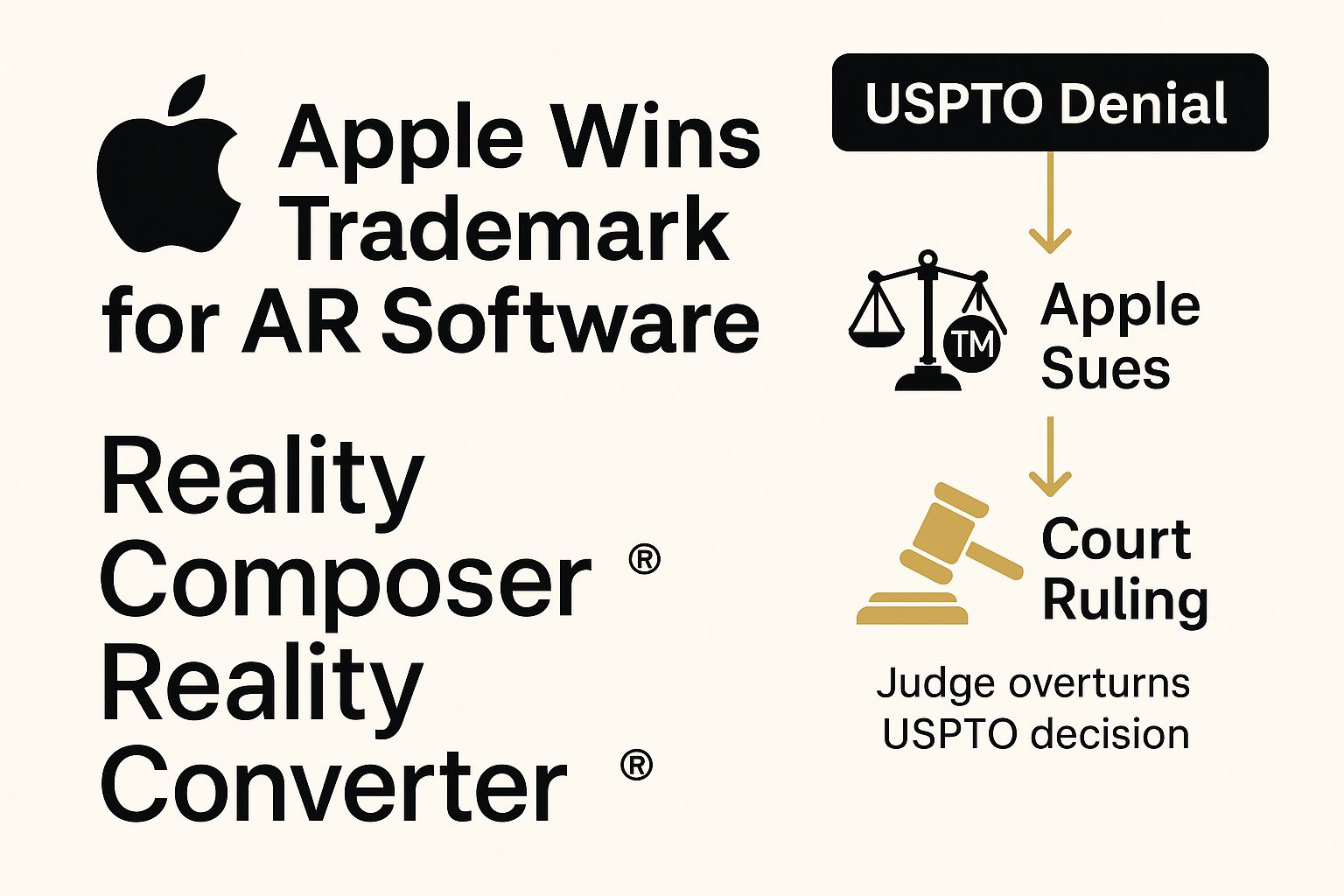In a major win for Apple, a federal judge has ordered the USPTO to grant federal trademarks for its augmented reality development tools—“Reality Composer” and “Reality Converter.” The decision may reshape how tech companies establish brand distinctiveness in emerging software categories.
🧑⚖️ The Legal Backdrop
- Apple initially applied to register the marks in 2023. The USPTO tribunal sided with Turkish visual‑effects firm Zero Density, finding them too descriptive.:
- Zero Density argued that “Reality” was generic and Apple’s trademarks would confuse with its own marks like “Reality Engine.”:
⚖️ What Changed in Court
- In August 2025, Judge Leonie Brinkema reversed the USPTO decision, granting Apple’s marks after determining they were “suggestive” and had gained secondary meaning. Apple had successfully framed them as creative coined terms rather than merely functional descriptions.
- Judge Brinkema explained: “Although the term ‘Reality’ is likely descriptive … the term stretches beyond its descriptive meaning when combined with ‘composer’ and ‘converter.’”
📌 Why This Matters
- It sets a precedent for tech marks that may appear descriptive—but gain distinctiveness through usage and creative combination.
- It may embolden tech companies developing AR, AI, or VR tools to pursue more aggressive branding strategies.
- Zero Density’s own defense benefits: the decision may lend weight in other pending “Reality”-related disputes.
💡 Best Practice Takeaways
- Choose names that combine descriptive terms with a creative twist to support a strong argument for suggestiveness.
- Build consumer recognition early to support secondary meaning—use consistent branding across platforms, media, and marketing.
- Prepared to litigate? Position your application to highlight creativity, not just functionality.
Bottom line: This outcome marks a turning point in how AR and digital tools can achieve trademark protection. Apple’s win illustrates that even potentially descriptive phrases can succeed if presented strategically.
Need support?
Moore Law PC can help evaluate your trademark strategy, assess mark strength, or guide you through arguments focused on suggestiveness and secondary meaning.
Nathan Moore is a trademark attorney located in Nashville. Moore Law PC helps individuals and businesses successfully apply for and register trademarks nationwide.



